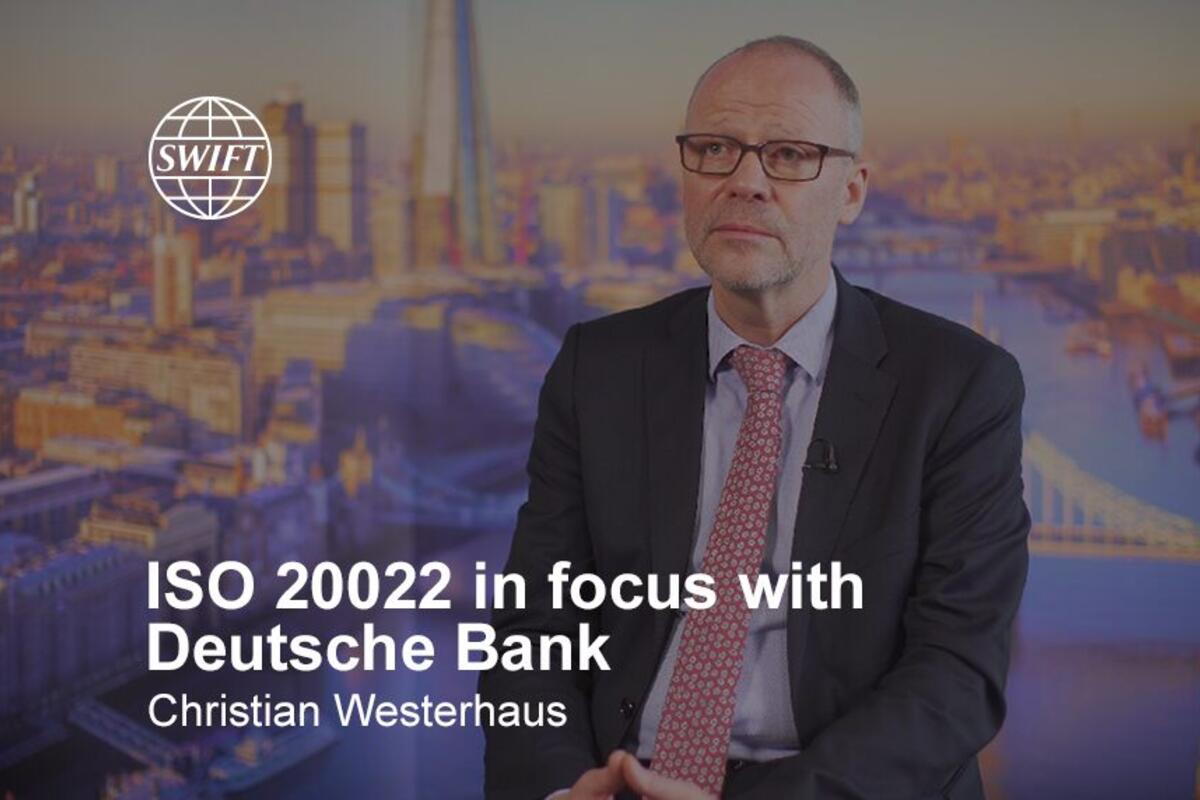Deutsche Bank’s adoption of ISO 20022 means streamlined processes, richer data and the real-time tracking of cross-border payments
The time for ISO 20022 is now. The new financial standard will represent a tremendous leap forward in banking with far reaching implications for Swift and the network of banks that form the most pervasive, reliable and secure value transfer platform in the world.
Deutsche Bank as a global transaction bank is leading the way, supporting the definition of usage guidelines that will define how ISO 20022 is used by banks. Eager to reap the benefits afforded by rich, quality data provided by ISO 20022 the bank is making significant investments in enabling the new standard and data model across its front, middle and back office technology stack.
While payments are increasingly fast, reconciliations remain slow, preventing banks and their corporate customers from realising the promise of fast and instant payments.
Deutsche Bank’s experience
Payment instructions and their confirmations signal when funds are available, but carry little information of the purpose behind those available funds. As a consequence corporate treasures implement complex reconciliation systems and processes to match funds with their itemised invoices on cost of the efficiency of the supply chain. With end-to-end rich remittance and invoice information fields in ISO 20022 credit transfer messages this reconciliation becomes far simpler and automated.
The adoption of ISO 20022 lays the foundation for significantly improving the payments ecosystem.
One of the most significant costs in correspondent banking today comes from compliance with monitoring, screening and filtering requirements with regulatory expectations and scrutiny likely to further increase. Unstructured information and/or the lack of sufficient information in payments require banks to maintain respectively sophisticated monitoring, screening and filtering capabilities. However, even with sophisticated controls, often up to 10% of payments fail straight through processing. Over time as the banking network implements ISO 20022 we will collectively require the use of rich and structured originator and beneficiary party fields. This will allow for at the same time simpler and more efficient controls, thereby reducing costs for banks and our customers.
Increasing regulatory expectations on correspondent banks have led to de-risking and financial exclusion. Current format restrictions and information transmission limitations add to this trend as this directly negatively impacts the capability of correspondent banks to control the individual transactions received from their respondents. Increased transparency and control capabilities in relation to individual transactions, might enable correspondent banks to get the additional comfort needed to (re-)consider de-risking of relationships.
A healthy banking network is inclusive, equitable, with low barriers to entry and participation. ISO 20022 will be a powerful facilitator of our next generation of correspondent banking and Deutsche Bank is eager to see this come to fruition.
Benefits
- With the ability of carrying rich remittance and invoice information ISO 20022 will allow banks to facilitate Corporate reconciliations and better supply chain management
- The high quality data that ISO 20022 can provide will increase anti-money laundering and fraud monitoring, as well as screening and filtering capabilities of banks
- As a result of the increased transparency and control capabilities in relation to individual transactions, correspondent banks may get the additional comfort to reconsider de-risking of relationships



